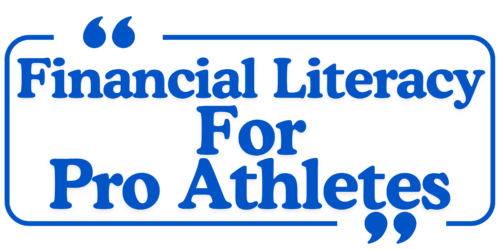Curriculum: Health and Wellness Financial Literacy
Module 1: Introduction to Health and Wellness Financial Literacy
- Objective: Understand the importance of financial literacy in managing health and wellness expenses.
- Topics Covered:
- Overview of health and wellness costs for athletes
- The impact of health on financial stability and performance
- Setting personal health and wellness financial goals
Module 2: Understanding Health Insurance
- Objective: Learn the fundamentals of health insurance coverage and options.
- Topics Covered:
- Types of health insurance plans: HMO, PPO, EPO, and POS
- Key terms: premiums, deductibles, copays, and out-of-pocket maximums
- Navigating employer-sponsored vs. private health insurance
- Understanding covered services and exclusions
Module 3: Managing Medical Expenses
- Objective: Gain skills in managing and budgeting for medical expenses.
- Topics Covered:
- Identifying common medical expenses: doctor visits, prescriptions, and treatments
- Strategies for budgeting medical costs within your overall financial plan
- Utilizing Health Savings Accounts (HSAs) and Flexible Spending Accounts (FSAs)
- Negotiating medical bills and understanding billing statements
Module 4: Nutrition and Wellness Planning
- Objective: Understand the financial aspects of nutrition and wellness.
- Topics Covered:
- Importance of nutrition for athletes and its financial implications
- Budget-friendly meal planning and preparation
- Identifying cost-effective sources of nutrition (groceries vs. supplements)
- Investing in wellness programs: gyms, classes, and personal trainers
Module 5: Fitness and Exercise Expenses
- Objective: Manage costs associated with fitness and training.
- Topics Covered:
- Types of fitness-related expenses: gym memberships, equipment, and training sessions
- Strategies for finding cost-effective fitness solutions
- The value of investing in professional training and coaching
- Balancing fitness spending with overall financial health
Module 6: Mental Health and Financial Well-Being
- Objective: Explore the connection between mental health and financial literacy.
- Topics Covered:
- Understanding the costs associated with mental health services
- Budgeting for therapy, counseling, and wellness programs
- The importance of self-care and its financial implications
- Strategies for managing stress related to financial issues
Module 7: Planning for Long-Term Health Care
- Objective: Prepare for potential long-term health care needs.
- Topics Covered:
- Understanding the importance of long-term care insurance
- Estimating potential long-term health care costs
- Planning for healthcare needs in retirement
- Exploring options for care: in-home care vs. assisted living
Module 8: Injury and Recovery Financial Planning
- Objective: Manage finances during injury and recovery periods.
- Topics Covered:
- Understanding the financial impact of injuries on income and expenses
- Budgeting for rehabilitation and therapy costs
- Navigating workers’ compensation and disability benefits
- Strategies for maintaining financial health during recovery
Module 9: Philanthropy and Wellness Initiatives
- Objective: Explore the financial aspects of giving back to health-related causes.
- Topics Covered:
- Identifying health and wellness organizations to support
- Understanding tax benefits of charitable donations
- Creating a personal wellness philanthropy plan
- The impact of philanthropy on community health and well-being
Module 10: Building a Sustainable Wellness Lifestyle
- Objective: Create a long-term plan for maintaining health and wellness financially.
- Topics Covered:
- Integrating health and wellness into overall financial planning
- The importance of regular financial check-ins related to wellness
- Creating a supportive environment for health and wellness
- Setting goals for continuous improvement in health and financial literacy
Assessment and Certification
- Objective: Evaluate understanding and provide certification upon completion.
- Components:
- Quizzes at the end of each module to assess knowledge retention
- A final exam covering all modules
- Certificate of completion for successful participants
Interactive Elements
- Webinars and Q&A Sessions: Host live sessions with health and financial experts to discuss relevant topics.
- Discussion Forums: Create a community space for participants to share experiences, tips, and strategies related to health and wellness financial literacy.
This curriculum aims to empower professional athletes and their families with the knowledge and skills necessary to manage health-related finances effectively, fostering overall well-being and financial health.
